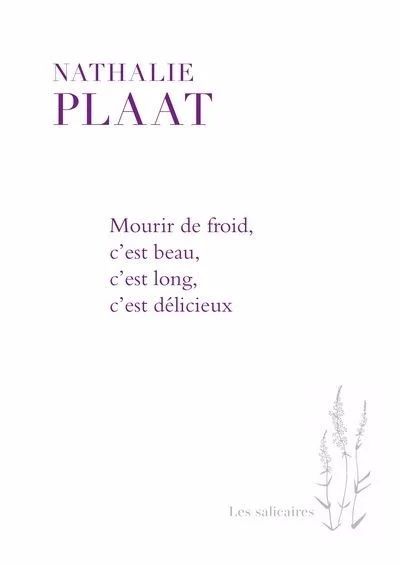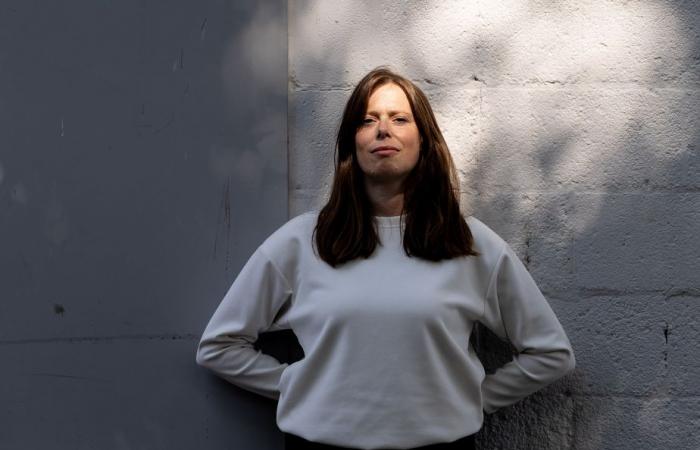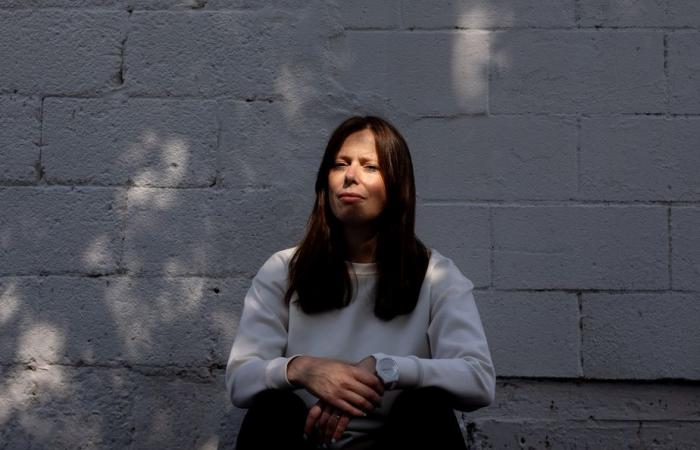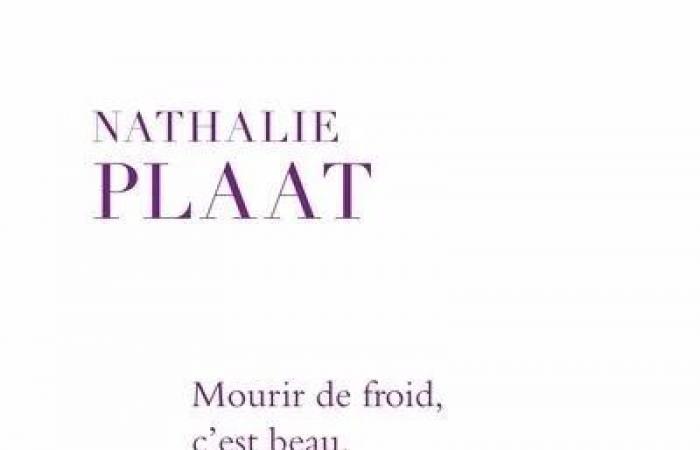Nathalie Plaat recounts her first love in To die of cold, it’s beautiful, it’s long, it’s deliciousa captivating invitation to let yourself be transfixed by the tragedy of life. And to think differently about madness. A story that has the effect of a knife in the potato.
Posted at 1:13 a.m.
Updated at 8:00 a.m.
As a teenager, Nathalie Plaat did not attend shows by pop singers, but rather those of Richard Desjardins. “After one of his shows, I went to ask him for an autograph in my school diary and he was cramped,” remembers the one who, from that youth, has retained the sparkling look and a certain relationship to the absolute of love. The title of his new book is also borrowed from Aquinasone of the countless great songs from the guy from Rouyn-Noranda.
Adolescents are often more serious, less carefree, than we want to remember. “And they are lucid! They have little tolerance for hypocrisy,” adds the author of To die of cold, it’s beautiful, it’s long, it’s delicious Who, in this sparkling story, remembers the incandescent power of her first love for a boy with whom she listened to Desjardins and alongside whom she entered what we call adulthood.
A boy weighed down by serious mental health problems who, quietly, over the years, will cross to the other side of the proverbial mirror, multiplying the psychoses. “To quote another song, it’s an impossible love, which was not livable, but also a love which does not want to die”, she says about the one with whom she remained in contact long after the end of their relationship.
The columnist at Duty thus asks, in writing superbly attentive to the thousand nuances of mourning, what place to leave, in our hearts, for these loves which have transformed us and which live within us, even when they irremediably belong to yesterday.
“It has a lot to do with the culture of performance in which we live,” thinks the clinical psychologist about our need to place as much distance as possible between our present and an old relationship, even when it has profoundly shaped us .
“We use the expression past tense a lot,” she illustrates, before a huge smile takes over her face. “The past may never be settled!” Tragedy structures the human condition: we live, we die, and in between, we try to make sense of it all. »
Honor the past
“But,” she continues, “we live in a time where we like to say that we have overcome things, that we have tamed our inner world. We use economic vocabulary to talk about our emotions. It shows a great lack of humility in the face of the strength of feelings and the unconscious. We can have found love elsewhere, as is my case, we can not be eaten away by the pain, but remain haunted by what a person represented. »
PHOTO MARTIN TREMBLAY, THE PRESS
The author Nathalie Plaat
During the breast cancer which greatly disrupted her daily life, at the time of the pandemic, Nathalie Plaat received messages from each of her exes, and “that’s when I realized that I had loved a lot, and that I had been loved very much. It was very touching. It’s like we’re honoring what we’ve been through.”
She adds, in a sort of gratitude mixed with sadness: “The only one who didn’t write to me when I was sick, who couldn’t write to me, I wrote a book for him. »
Crazy Diamond
This book is of course To die of cold, it’s beautiful, it’s long, it’s delicious. Several years after the end of their relationship, even after Nathalie Plaat had made her life with another man, this crazy diamond of a too lucid boy, who had become an adult in spite of himself, had never stopped calling her, in surprise and at improbable hours, for reasons not always clear, although always dependent on an intimate sense of poetry. On the telephone, he could order her, with the conviction that clairvoyance confers, to go outside, almost in the middle of the night, to contemplate the stars and the trees.
That was until these phone calls stopped and this desperate man no longer gave any sign of life to anyone. And we can only imagine the worst. “I dare to use the words crazy and madness,” specifies the author, “and I use them as [l’intellectuel français] Michel Foucault, who said he was more afraid of the word mental illness than of the word mad. I love the word crazy, in its magnificent sense. We’re all a little crazy. »
By combining the die-hard romanticism of the authentic writer with the well-educated sensitivity of the psychologist, Nathalie Plaat therefore reflects on the fate reserved for our madmen, in the hope, perhaps, that they do not know the same fatal fate as the one she once loved and will love forever.
“I don’t pretend to know the answer, but we are collectively faced with a realization of helplessness in relation to our crazy people. And my hypothesis is that it is linked to our problem of dualism. If we could all more accept our parts of madness, of darkness, we would have a less divided view on these subjects, with the healthy on one side and the crazy on the other. »

To die of cold, it’s beautiful, it’s long, it’s delicious
Nathalie Plaat
The University of Montreal Press
216 pages








